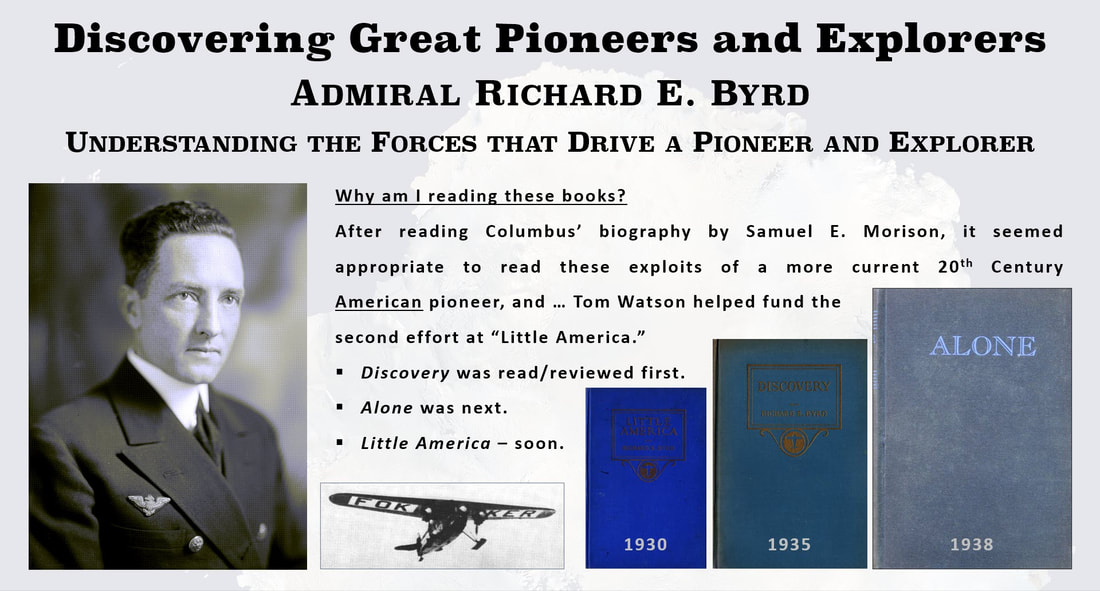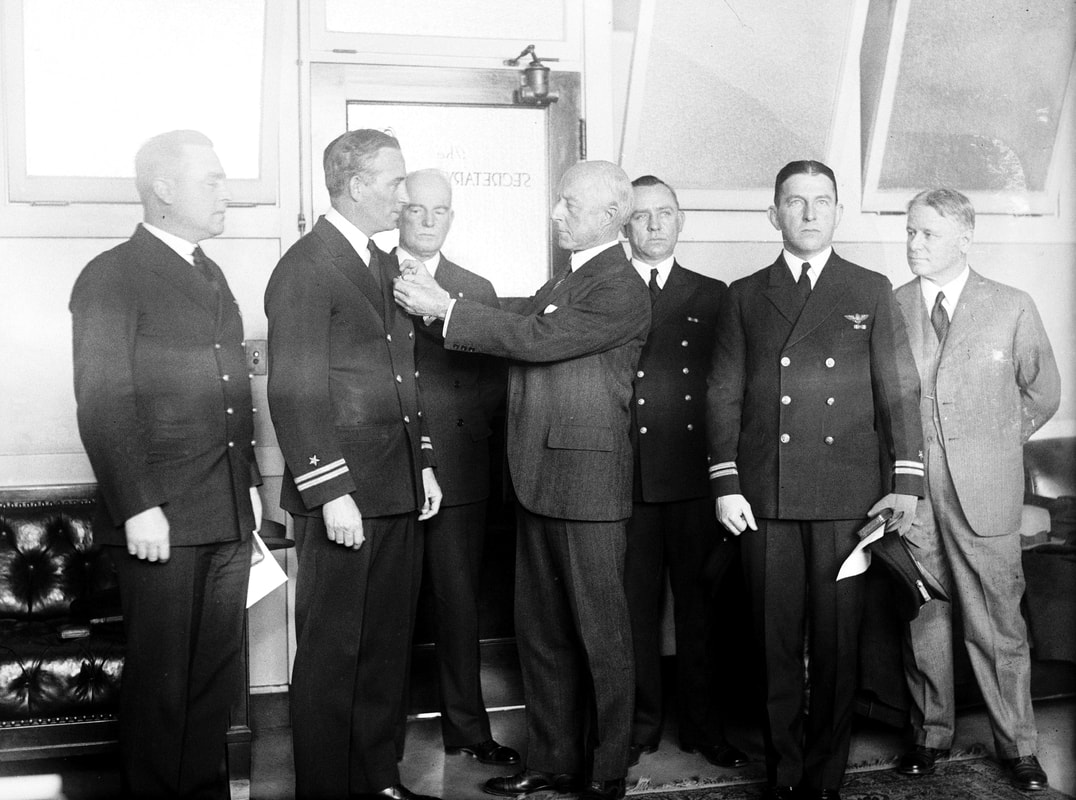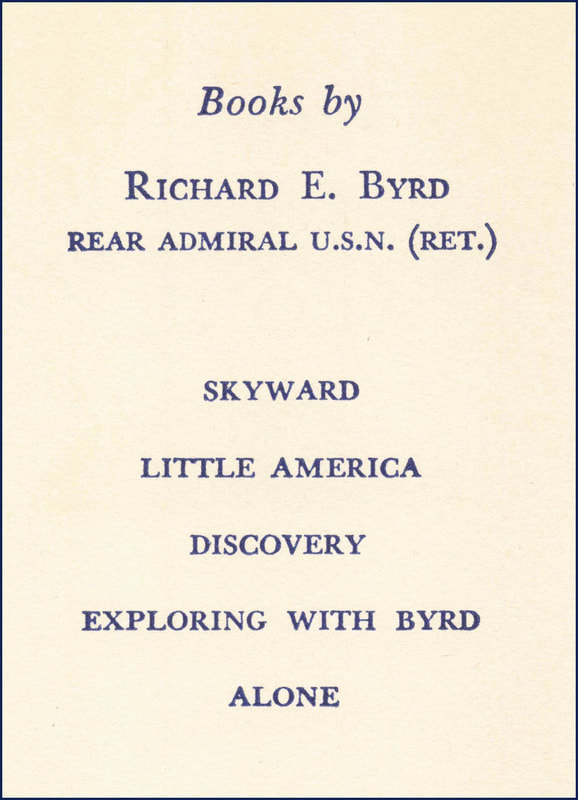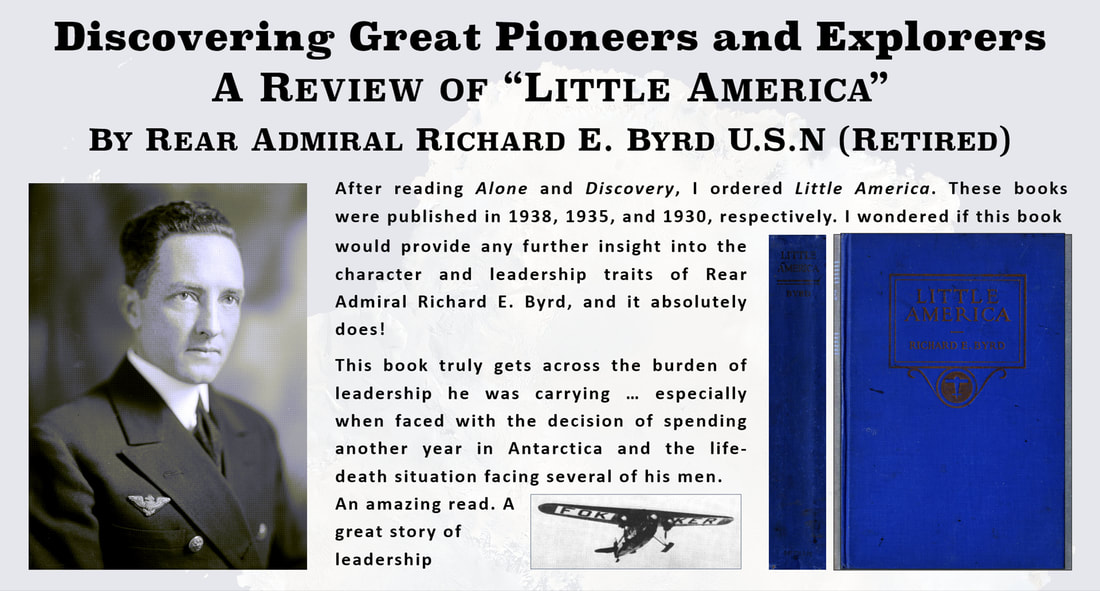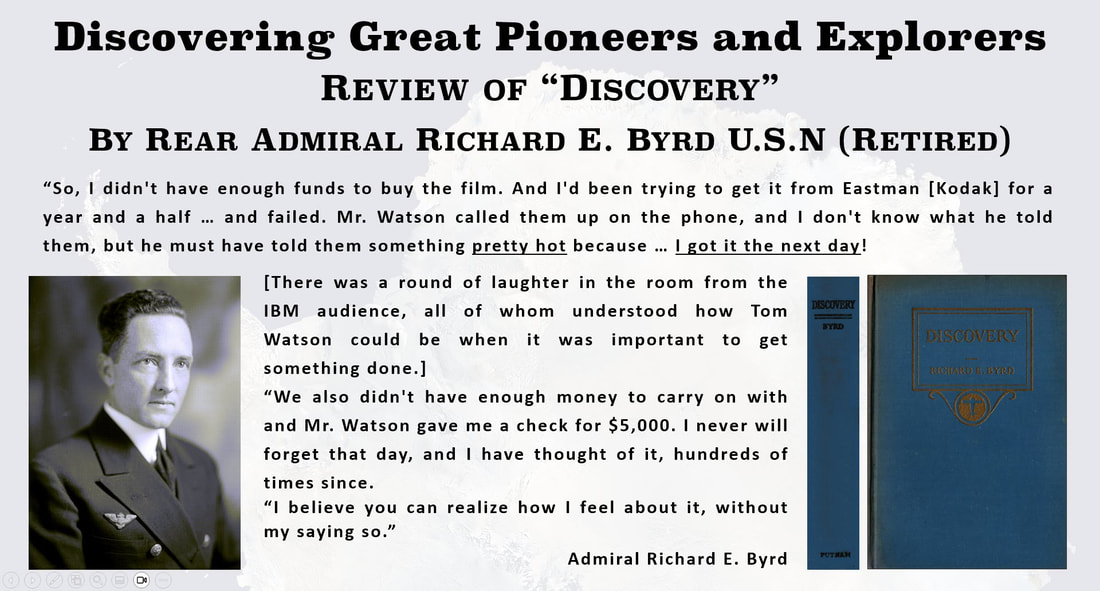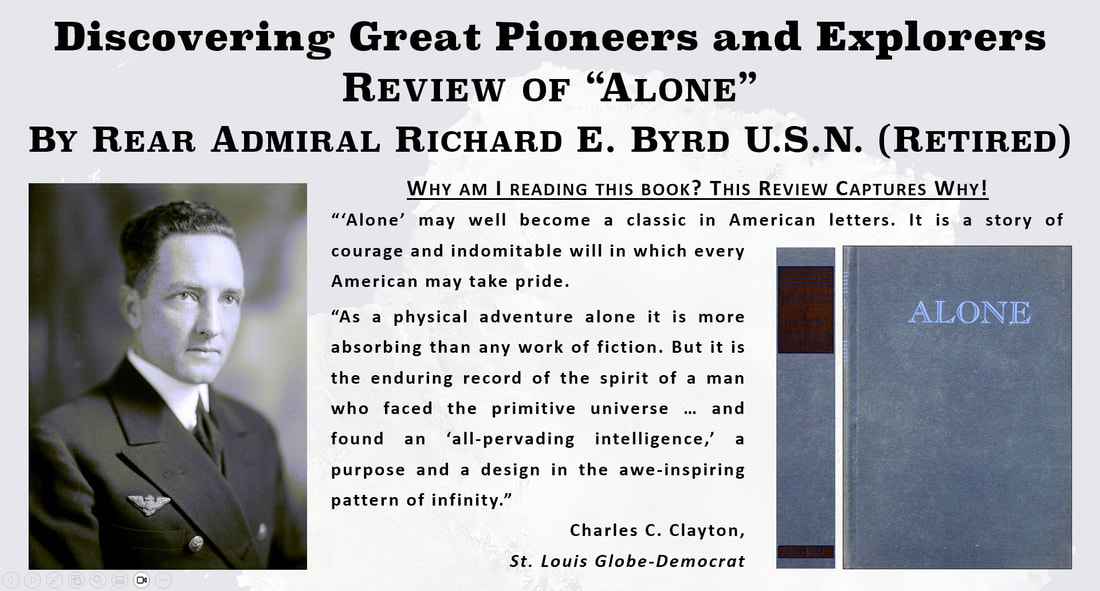Rear Admiral Richard E. Byrd Home Page
|
|
Date Published: September 24, 2023
Date Modified: September 30, 2023 |
“In the passing of Rear Admiral Richard E. Byrd, America and the world have lost one of the truly great explorers of all time … I have lost an old and dear friend. As Commander of two Arctic and five Antarctic expeditions, Admiral Byrd dedicated his life to the exploration of those little known areas. He was the first man to fly over both the North and South Poles. His explorations charted more than two million square miles of territory, adding tremendously to the world’s scientific knowledge of the polar regions.”
President Dwight D. Eisenhower, March 12, 1957
Rear Admiral Richard E. (Evelyn) Byrd
- A Short Introduction to Admiral Byrd’s Character
- Links to Reviews of “Little America,” “Discovery,” and “Alone”
Observations by the Secretary of the Navy on Admiral Byrd’s Character
This is what Claude A. Swanson, U.S. Secretary of the Navy had to say about the character of Admiral Richard E. Byrd.
|
“He has received the thanks of Congress as well as the five highest medals the country can give … no other man has all of these decorations; …
[but] when the Congress had it in mind to vote him a special medal of honor after his flight to the South Pole, … Byrd asked that medals be given to his men instead; … [and] when Congress would have promoted him to the rank of Admiral in recognition of his flight over the North Pole, … he absolutely refused to accept … on the ground that his exploit did not justify such an exceptional exercise of the power of Congress, effectively squelching the movement; … [but] after his flight over the South Pole, the demand from the public for his promotion … was so insistent that he was promoted in spite of himself.” Claude A. Swanson, Secretary of the Navy, “Introduction,” Discovery
|
According to the Secretary of the Navy, Byrd asked that medals be given to his men instead of to him. This is evidently shown in this picture of an Antarctica team ceremony held on the first anniversary of the flight over the South Pole."
|
Books by Admiral Richard E. Byrd
|
|
|
“Even at Little America I knew of bunkmates who quit speaking because each suspected the other of inching his gear into the other's allotted space; and I knew of one who could not eat unless he could find a place in the mess hall out of sight of the Fletcherist [the practice of chewing food until it is reduced to a finely divided, liquefied mass] who solemnly chewed his food twenty-eight times before swallowing.
“In a polar camp little things like that have the power to drive even disciplined men to the edge of insanity. During my first winter at Little America I walked for hours with a man who was on the verge of murder or suicide over imaginary persecutions by another man who had been his devoted friend. Richard E. Byrd, "Alone"
|
Reviews of Rear Admiral Richard E. Byrd's Books (chronological order)
Review of "Little America: The Flight to the South Pole"
|
“If Rear Admiral Richard E. Byrd … had not missed his train in London, England, some years ago, his magnificent expedition to the bottom of the world would not have been made—at least by him.
|
Published in 1930
|
Review of "Discovery: The Story of the Byrd Second Antarctic Expedition"
|
The success of this book is found in two measurements: A publication noted that 40,000 copies of the book were pre-ordered, and it quickly joined the year’s nonfiction bestseller list.
|
Published in 1935
|
Review of "Alone: Alone at Advance Base in Antarctica"
|
"And, since my sufferings bulked so large in it and since a man’s instinct is to keep such things to himself, I did not see how I could write about Advance Base and still escape making an unseemly show of my feelings.”
Admiral Richard E. Byrd, "Alone"
|
